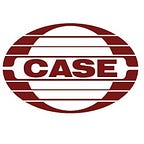By Givi Gigitashvili, CASE Analyst
Following the imposition of sanctions on Russia in 2014 by the US and EU, the European Bank for Reconstruction and Development (EBRD) imposed a lending freeze, halting new investments in the country. Moscow has consistently disputed this decision, saying that the EBRD was not compliant with its own internal rules and such a suspension went beyond its core mandate. Nevertheless, after Russia’s complaint letter to the EBRD’s Board of Directors last year, the EBRD did not find any violations in its guidance to stop investments in Russia. Against this backdrop, Russian representatives once again denounced the decision on halting investments during the 2017 annual meeting last week and alluded to Moscow’s intention to find “legal solutions of the situation”.
The Russian side has several claims against the EBRD in this matter. The first is that the Board of Directors’ decision violated Article 8.3 of the EBRD’s establishing agreement, which states that the Board can suspend a state’s access to the Bank’s resources “in cases where a member might be implementing policies which are inconsistent with Article 1 of this Agreement, or in exceptional circumstances.” Given that Article 1 has only economic connotations, Russia claims that is has not done anything in breach of this particular Article.
Secondly, in the light of the Bank’s declared mission to promote open and sustainable market economies, the investments suspension was seen in Moscow as an explicitly political decision, camouflaging geopolitical and foreign policy objectives of the biggest shareholders (the US, UK, and Germany). On these grounds, Russia claimed that the Board of Directors breached Article 32 of the EBRD establishing treaty about impartiality in decision-making and exceeded its mandate.
Thirdly, Russia claims that the Board of Directors, which is responsible for the operations of the EBRD, violated certain procedural provisions, namely, the EBRD establishing agreement, which stipulates that a suspension of member’s access to the Bank’s resources “shall be taken by the Board of Governors by a majority of not less than two‑thirds of the Governors.” But in Russia’s case, the Board of Governors, the highest body, has not voted for imposition of a lending freeze.
Since 1991, the EBRD has invested a quarter of the bank’s entire investments in Russia (over 26 billion euros) and was the biggest single foreign investor in Russia over the last decade. Indeed, its lending portfolio in this country was the largest one until 2015. Despite the freeze of new investments, the EBRD is still running its pre-2014 projects in Russia and its current portfolio there amounts to € 3.7 billion. After the imposition of this restriction, the EBRD’s lending shifted to Turkey and Ukraine, two countries that recently have had tensions with Russia. Given that its net capital flow is recovering slowly, Russia badly needs the resumption of the EBRD investments.
The EBRD’s response to these allegations was that Russia’s complaints were speculative, with the Board of Governors concluding last Wednesday that the Bank had not broken its internal rules, upholding the existing ban on investments. Not surprisingly, Russia promptly announced countermeasures, including not participating in the bank’s capitalization in case the Bank’s financial situation deteriorates in future and presenting evidence advising the international rating agencies to downgrade EBRD’s AAA rating. In addition, Moscow is going to rely more on “de-politicized” development banks, such as Asian Infrastructure Investment Bank (AIIB) and the BRICS New Development Bank (NDB).
Overall, upholding the lending freeze is bad news to Russia, which experiences a slowdown of economic growth since 2014. On the other hand, not enough evidence is available to suggest that the lending freeze will significantly deteriorate the financial performance of the EBRD. Furthermore, when it comes to the hint about “legal measures”, the EBRD is an international financial institution, which cannot be sued in an external court. Last but not least, if Russia decides to leave the EBRD, which is not being considered yet, it can further aggravate the country’s economic isolation.
